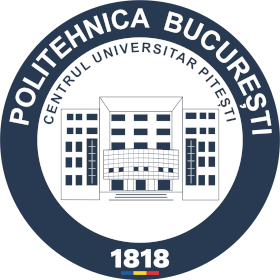- Faculties
- Faculty of Theology, Letters, History and Arts
- Department of Applied Foreign Languages
- Students
- Students - FAQ
Students- Frequently asked questions
What is the student contract?
The education based on transfer credit allows students to define their own educational program, starting from the offer and the regulations which establish the specific of the diploma granted by the faculty. At the beginning of each university year, students sign a student contract governing their relationship with the faculty. The contract stipulates the subjects of the programme and the associated number of credits obtained after passing the examinations in each subject within their own specialisation.
What is the difference between freely chosen subjects and optional subjects?
Optional courses represent distinct packages of courses, students having the possibility, as well as the obligation, to choose a package. The selected subject has the same regime with all the other compulsory courses. That is, once selected, the promotion of an optional subject is compulsory.
Freely chosen or facultative subjects: within basic training, students are allowed to choose subjects/courses conducted within other faculties or universities. Freely chosen or facultative subjects complete the basic training of students and may be chosen either from the curriculum of their programme, or from the curriculum of other faculties, departments or universities.
If I fail to pass an examination in a subject from a practical course, do I have to repeat the examination in all the subjects of the practical course?
Yes, during the session of re-examination, it is required to repeat the examination in all the subjects composing the practical course.
If the percentage of the activity at a subject, on a semester, exceeds 50% of the final grade, do I have to obtain 5, the passing grade, at the final examination?
The grade obtained at the final examination must be at least the minimum grade, that is 5.
What is the procedure of granting credits?
The credit associated with a subject is fully granted to a student, after passing the examination in a subject, that is, when the final grade, after the evaluation of specific knowledge in each subject, is higher or at least the minimum grade for passing (5). Partial granting of credits, for each component of the evaluation, is not allowed. The minimum number of credits for the compulsory and optional subjects is 60 per year of study.
What does transfer credit mean?
Credits can be transferred if they are recognized to validate and accommodate a period of study carried on by the student within other specialisation, faculty or university. Credit transfer is automatic in the case of mobilities in European programmes, or if they were carried on in an institution with which the home faculty/institution previously signed an agreement. In other situations, such as the transfer of the student to another specialisation or faculty in the same university or university centre, or after an interruption which would require passing certain subjects, the credit transfer becomes effective after the approval of the faculty where the students desires to continue his/her studies. The validation of credits through credit transfer is carried out taking into account the competences achieved within a certain subject.
Where can I attend the specialised practical training session within the Applied Modern Languages Programme?
The specialised practical training sessions are carried out in collaboration with partners of the Applied Foreign Languages Department, based on agreements of practical training. If the student wishes to carry out the specialised practical training sessions within other organism, company or institution, he/she must present documents in order to submit evidence of the training, which should contain tasks and activities leading to achieving competences associated with the specific mission of the Applied Modern Languages programme.
What are the possibilities to get scholarships and training abroad?
In order to find more information on scholarships and practical training abroad, please click on the links below:
http://www.upit.ro/index.php?page=mobilitati-erasmus
http://www.upit.ro/index.php?page=stagii-profesionale-si-burse
http://www.eurodesk.ro/teme.php?id=EU0010000003
Where can I study abroad with Erasmus?
You can study abroad with Erasmus programme at those universities which signed an inter-institutional agreement with the University of Pitești. For more details go to
http://www.upit.ro/index.php?page=mobilitati-erasmus
and address your supervisor
In the case of training and studying abroad, how are my results validated?
The degrees are validated based on official documents issued by the host university. If a student studied and passed a subject which is not to be found in the curriculum of the Applied Modern Languages programme (University of Pitești) his/her results will be registered on the Diploma Supplement accompanying the Bachelor’s Degree Diploma issued after graduation. If there are subjects in the AML curriculum which cannot be validated as described above, the student must take the examination in such subjects at his/her return.
Can I become a teacher after the graduation of the Applied Modern Languages programme?
Students who wish a career in education may choose to carry out the teacher training module for which they have to register at the beginning of the 1st year of study.
How do I choose my Bachelor’s Thesis?
Bachelor’s theses topics are announced a year before the graduation exam. Each member of the teaching staff who has the right to guide Bachelor’s theses proposes a list of topics in his/her area of interest. At the beginning of the 3rd year of study, students may choose a topic or they may come with a proposal of their own, a case in which, the coordinator/advisor must approve the topic. All topics are announced and submitted for approval by the Council of the Department. The coordinator, together with the student, will set up a schedule for the elaboration of the thesis, also based on the Bachelor’s Thesis Guide, available on the website and the display board of the Department. To see the topics for the current year and the methodology for graduation, please go to http://www.upit.ro/index.php?page=absolventi-limbi-moderne-aplicate-flit
What Master’s Degree Programme can I take on after graduating the Applied Modern Languages programme?
After completing the Bachelor’s degree within the Applied Modern Languages programme, students may attend Master’s Degree programmes in their field: translation-interpreting, traductology, terminology, cultural studies, international relations. Students also have the possibility to attend Master’s Degree programmes in other fields, a case in which they cannot apply for subsidized tuition fees.








